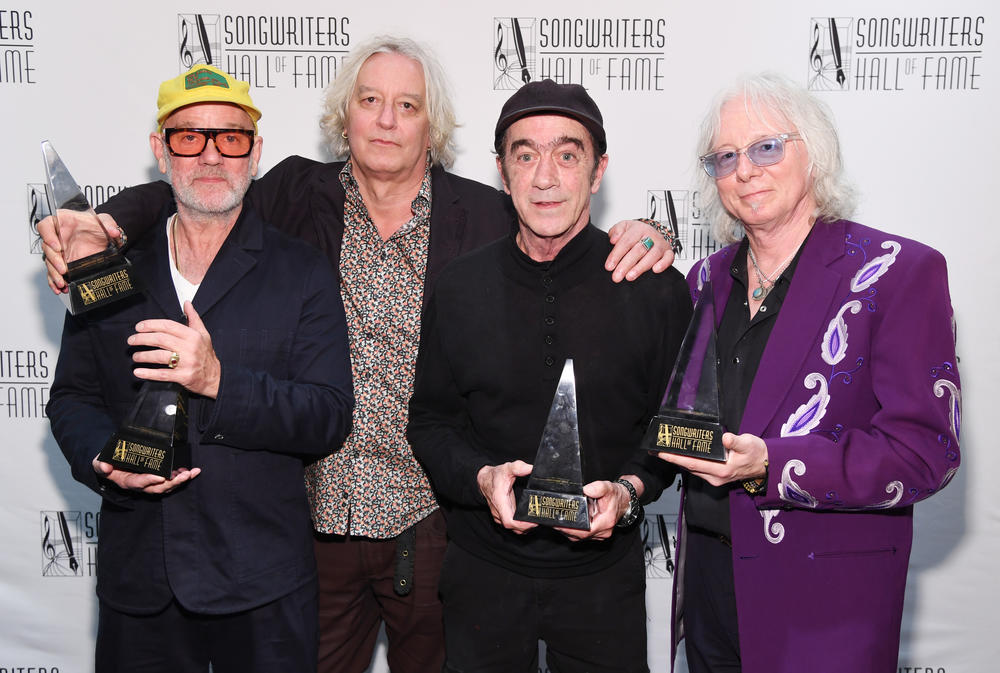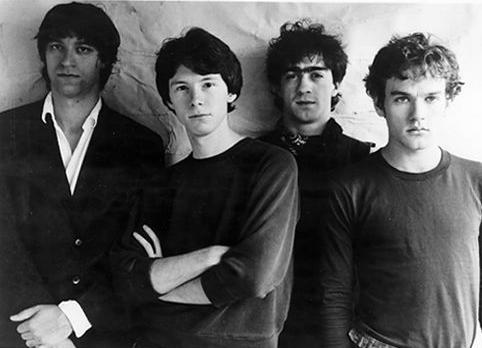
Caption
(L-R) Michael Stipe, Peter Buck, Bill Berry and Mike Mills, of R.E.M., attend the 2024 Songwriters Hall of Fame Induction and Awards Gala at New York Marriott Marquis Hotel on June 13, 2024 in New York City.
Credit: L. Busacca/Getty Images for Songwriters Hall of Fame




